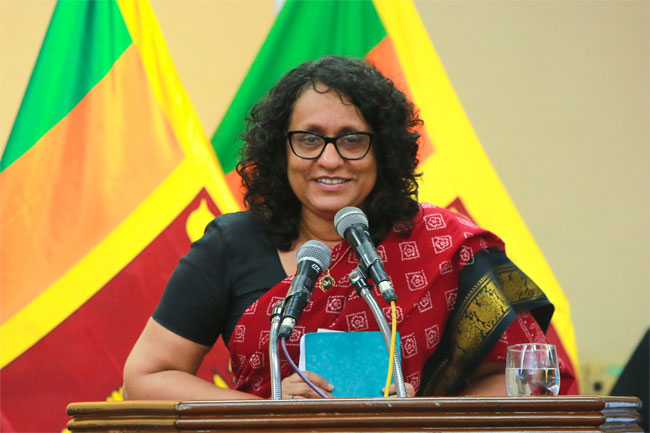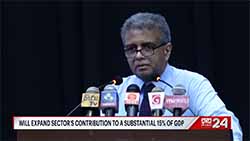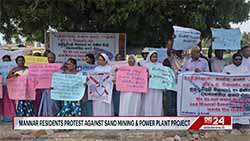“Law on corporal punishment not a legal amendment aimed at teachers”: PM Harini
September 28, 2025 04:37 pm
The law on corporal punishment is not a legal amendment aimed at schools or teachers, but a reform made for the protection of children throughout society,” said Prime Minister and Minister of Education, Higher Education and Vocational Training, Dr. Harini Amarasuriya.
She made this statement during a program held yesterday (27) at the Ministry of Education with the participation of principals of national schools.
The Prime Minister further emphasized that this issue extends beyond schools and relates to both physical and psychological punishment of children.
Prime Minister Dr. Harini Amarasuriya said, “This is not just a problem within schools. It affects children under police or probationary custody, those institutionalized, or those who are displaced. These children experience both physical and psychological harm. There are serious concerns about the violence faced by children from adults and responsible authorities. This amendment was not introduced to target teachers or schools specifically, but as a broader reform to protect children from all forms of punishment. It particularly addresses the experiences of children in institutions, under police care, or in probation systems.”
She acknowledged that while the legal reform has a broader scope, the public debate has narrowly focused on whether children can now be punished at all in the name of discipline.
The Prime Minister said, “We have not banned punishment altogether, nor have we prohibited maintaining discipline. But if, as a society, we believe that the only way to discipline a child is through physical or psychological violence, then we have much to reflect upon. If we live in a society where violence is seen as necessary for discipline, then we must have serious conversations. There are many ways to correct behavior without causing humiliation, trauma, or pain. Let’s organize workshops and engage in dialogue on such positive disciplinary methods.”
The Prime Minister highlighted deeper societal concerns that go beyond schools, stating that Sri Lanka is not only facing an economic crisis, but also multiple social crises.
She concluded by stressing the importance of moving society forward in a more humane and progressive direction where violence will not be the go-to solution, and children can grow up in environments that nurture, rather than harm, their well-being.












